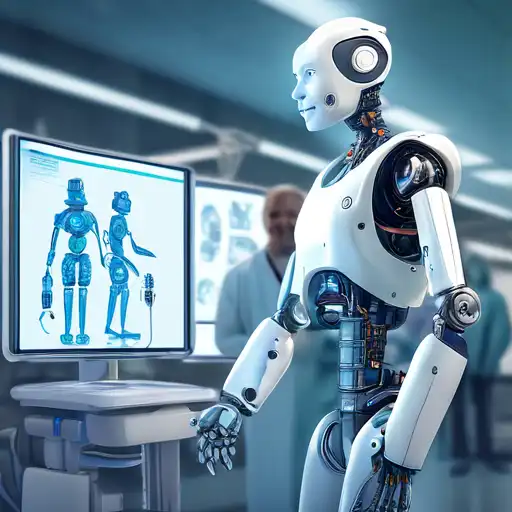The Dawn of Robotics in Healthcare
The integration of robotics into healthcare is revolutionizing the way medical services are delivered. From surgical procedures to patient care, robotics technology is setting new standards for precision, efficiency, and safety in the medical field.
Revolutionizing Surgical Procedures
Robotic-assisted surgery has become a cornerstone in modern medical practices. Systems like the Da Vinci Surgical System allow surgeons to perform complex procedures with enhanced precision, smaller incisions, and reduced recovery times. This not only improves patient outcomes but also minimizes the risk of complications.
Enhancing Patient Care and Rehabilitation
Beyond the operating room, robotics plays a pivotal role in patient care and rehabilitation. Robotic exoskeletons, for instance, are empowering individuals with mobility impairments to walk again, offering hope and improved quality of life. Similarly, robotic prosthetics are providing amputees with unprecedented levels of functionality and comfort.
Automating Routine Tasks
Robotics is also transforming healthcare by automating routine tasks. Robots are now used for dispensing medication, sterilizing equipment, and even assisting in patient monitoring. This automation allows healthcare professionals to focus more on patient care, reducing burnout and improving service quality.
The Future of Robotics in Healthcare
The potential of robotics in healthcare is boundless. With advancements in artificial intelligence and machine learning, future robotic systems will offer even greater capabilities, from diagnosing diseases to personalized patient care plans. The ongoing research and development in this field promise to further elevate the standards of healthcare worldwide.
As we stand on the brink of this technological revolution, it's clear that robotics in healthcare is not just a fleeting trend but a game changer that's here to stay. The benefits it brings to both patients and healthcare providers underscore its importance in shaping the future of medicine.
Conclusion
The integration of robotics into healthcare is transforming the industry in unprecedented ways. From surgical precision to patient rehabilitation and beyond, the impact of robotics is profound and far-reaching. As technology continues to evolve, the possibilities for its application in healthcare are limitless, promising a future where medical care is more effective, efficient, and accessible to all.
